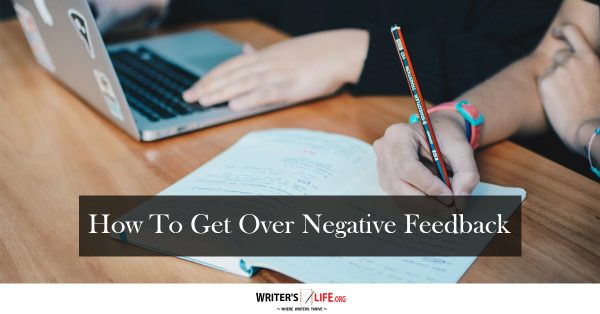- How To Tackle Jealousy In Creative Writing
- Common Submission Mistakes
- How To Stop Your Blog Becoming Boring
- The One Thing Every Successful Writer Has In Common
- How To Make Yourself Aware Of Publishing Scams
- Why Almost ALL Writers Make These Grammar Mistakes At Some Point
- 5 Tips For Authors On How To Deal With Rejection
- Top Mistakes to Avoid When Writing a Novel
- How to Avoid Common New Writer Mistakes
- 10 Mistakes New Fiction Writers Make
How To Get Over Negative Feedback

When we start out as writers, we often think that being rejected is the very worst thing that could happen to us, inevitable as it may be.
However, unfortunately getting negative feedback can actually feel worse. Usually, publishers and agents, if they aren’t interested in your work, will send you a generic email or letter. They’ll keep it brief and impersonal, and simply say they didn’t think your work was the right ‘fit’ for their list, but they are just one opinion so you should try your luck elsewhere.
While naturally receiving a rejection is disappointing, we can still comfort ourselves with the fact that many now-famous authors were once-upon-a-time rejected, and that what the letter says may be true, that we just aren’t a good ‘fit’ for that particular publisher.
However,getting feedback is something different altogether. It is personal, and it is thoughtful. It is specifically written by someone who has read your work and is so moved by it that they make time to give you their opinion.
The problem is if that feedback is negative it can be crushing, not only that but if communicated to you on a public space it can put off other potential readers from buying your book too.
However, we must remember that negative feedback is also pretty inevitable and if we look at some of the bestsellers out there, you’ll notice that none of them get away with having a perfect rating - and while the majority of their feedback might be positive, they will have had their fair share of negative reviews too.
So how do you make sure that you don’t let negative feedback stop you?
Remember that art is subjective.
Remember that people can be mean and jealous without cause or reason.
It’s also a good idea to prepare yourself for feedback in the best way, by only asking for it when you feel like your work is ready; otherwise, anything negative could get in the way of you finishing. Remember to seek out the opinions of people that count, that have expertise or are at least interested in the type of book you have written, but make sure if you are looking for honest and helpful feedback that you don’t just ask people you know will tell you ‘it’s brilliant’ regardless what they might really think! Get them to be specific, to explain why they feel the way they do, and to give examples too.
At the end of the day, you have to remember that this is your work, and you should be proud of it. Don’t let negative comments stop you, don’t change your whole book based on one person’s opinion and just keep learning, improving and moving forward regardless.
What do you do to help overcome negative feedback? We’d love to hear from you!

Bethany Cadman - bethanycadman.co.uk





























